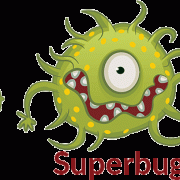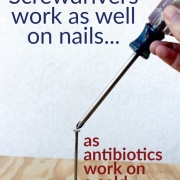
Article at a Glance

Antibiotics only work on bacterial infections. Most sore throats are caused by viral infections like colds or the flu. In these cases, antibiotics don’t work and can actually make you sick longer. Taking antibiotics for a viral infection won’t cure your sore throat, keep others from catching it, or help you feel better. In these … Continue reading “When a sore throat doesn’t need antibiotics”

If you don’t need antibiotics, play it safe. Learn when antibiotics can do more harm than good. Antibiotics work great on bacterial infections – shortening illnesses and saving lives. But most colds, flu, coughs, sore throats, and earaches are caused by viral infections. If you have a viral infection, an antibiotic won’t help and the … Continue reading “When taking an antibiotic can do more harm than good”

Did you know that taking antibiotics when you don’t need them poses one of the world’s most significant public health risks? Unfortunately, overusing antibiotics causes antibiotic resistance. This is when a strain of bacteria becomes resistant to the multiple types of antibiotics. These superbugs become harder to treat and much more dangerous. Diseases that were … Continue reading “Bugs are scary. Superbugs are even scarier.”

Although bacteria and viruses can cause similar symptoms, they are more different than a screw and a nail. Bacteria and viruses are different in the way they are structured and reproduce. Viruses have to live within another living cell in order to survive. To reproduce, they hijack the cell by inserting their own genetic material … Continue reading “Using the right tool for the job: When antibiotics do and don’t work”

Article at a Glance

Article at a Glance

Article at a Glance Report finds that antibiotics are being over prescribed for upper respiratory infections in children. Overusing antibiotics creates infectious organisms that are resistant to antibiotics. Antibiotics only work on bacteria, not viruses. Using an antibiotic on a virus is not only unhelpful but can cause harmful side effects. Whether or not an … Continue reading “Report Cautions Doctors About Prescribing Antibiotics for Children”